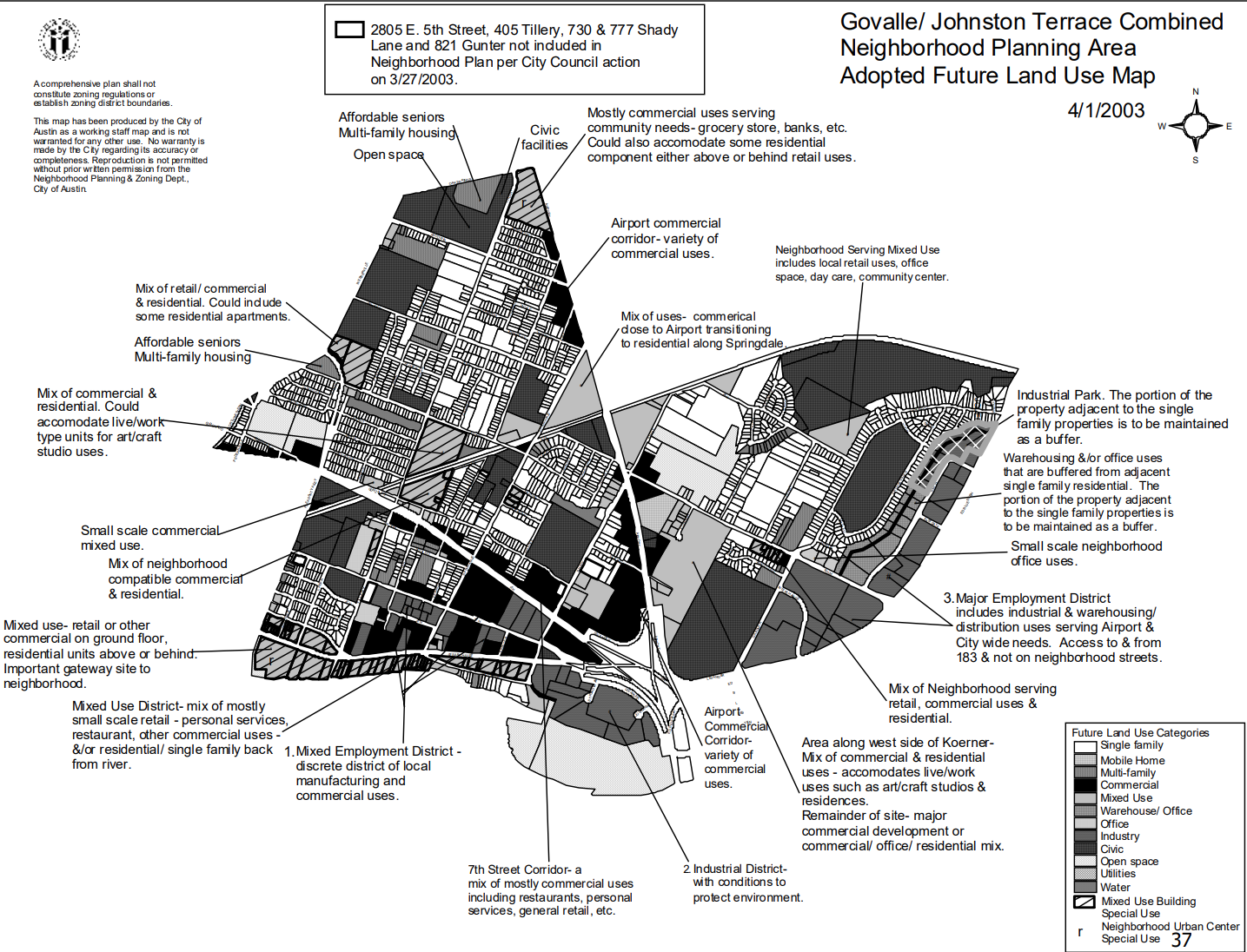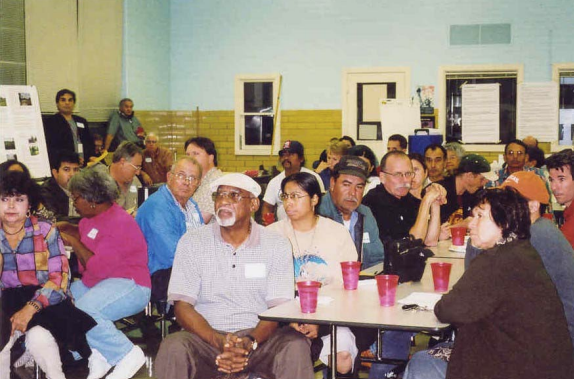Tank Farm
For over 35 years, an East Austin community of predominantly Latine and African American families and schools was surrounded by several bulk fuel storage tank facilities (aka “Tank Farms”) that devastated the surrounding environment. The above-ground fuel storage tanks stored more than 10 million gallons of toxic fuel, situated on a 52-acre site operated by six major oil companies: Exxon, Mobil, Chevron, Star Enterprises (now Texaco), CITGO, and Coastal States. During this time, residents experienced health issues such as headaches, nosebleeds, asthma, stomach issues, rashes, skin lesions, lung disease, and cancer, all believed to be related to their proximity to the tank farm.
In 1991, PODER and EAST (East Austin Strategy Team) launched a campaign to have the site shut down and removed. Upon uncovering records revealing concerns about the tank farm’s health impacts, hosting a series of community meetings, and lobbying local, state, and federal agencies, a comprehensive study was then completed. Soil and water contamination with concentrations of a cancer-causing chemical 720 times higher than the acceptable level was discovered.
The following year, PODER and EAST sponsored a “Toxic Tour” of the area to shed light on the findings. Elected officials from the city, county, and state levels, as well as neighborhood association representatives and school leaders, participated. In 1993, through PODER’s community organizing, the support of several elected officials, community involvement, and national media attention, the last Tank Farm holdout (Exxon) relocated from the community, and the companies agreed to remediation. For a timeline of these events, visit Tank Farm Story Map.
Browning-Ferris Industries (BFI)
Situated in the Gardens Neighborhood of East Austin, Browning-Ferris Industries (BFI), a waste management company, was contracted by the City of Austin to collect waste and recyclables from over 350,000 households. The site became a “mini” landfill, contributing to several issues that affected the surrounding community, including rat, roach, and mosquito infestations, heavy truck traffic causing damage to roads and homes, and further posing a threat to children and pedestrians, a major fire in 1996, noise, and general environmental pollution.
BFI management refused to accept responsibility for the issues the neighborhood faced, prompting PODER representatives to organize alongside the Gardens Neighborhood Association and coordinate efforts not only to relocate the site but also to change zoning laws that would permit any other hazardous facility to open in their backyards. After the site was rezoned to limited office, a series of negotiations between the City and BFI corporation, a failed attempt by BFI to relocate to another East Austin neighborhood, BFI permanently closed the Bolm Road recycling center in March of 2002. Visit BFI Chronology for more information and archives.
Govalle-Johnston Neighborhood Plan
The adoption of the Govalle-Johnston Terrace Neighborhood plan in March of 2003 was characterized by the historic re-zoning of over 600 properties in East Austin from industrial to less intense use, thus contributing to a greater compatibility with surrounding residential areas. PODER representatives, alongside their fellow community members, organizations, businesses, and city staff, held the great honor of participating in the combined neighborhood planning process. The purpose of the plan lies in improving the quality of life in the neighborhoods within the planning areas, and guiding future development. Visit GJT Adopted Plan for more information.
Holly Street Power Plant
Owned and operated by municipal utility Austin Energy, the 17-story tall Holly Street Power Plant imposed a number of health, safety, and environmental hazards in East Austin’s Holly neighborhood. For decades, residents and the surrounding environment faced recurring toxic chemical spills, constant noise, and electromagnetic field levels that far exceeded federal limits, and elevated nitrogen oxide levels that contributed to air quality degradation and dangerous, unexpected fires. To add insult to injury, the plant’s power distribution largely served Downtown Austin.
Press conferences and community health surveys led by PODER’s Young Scholars for Justice youth program revealed elevated rates of respiratory illness, nausea, and headaches in the community, believed to be associated with plant operations. Ongoing pressure from PODER and the community at large led the City Council to close the Holly Power Plant on September 30, 2007. Following its demolition and remediation, the property was transferred to Austin Parks and Recreation and thus redeveloped as parkland.
Pure Castings Co. Foundry
Located directly behind Zavala Elementary school in East Austin at 2110 E. 4th St, operations involving metal smelting and molten wax at Pure Castings Co. Foundry were contributing to the emission of toxic fumes in the neighborhood’s air. With the support of environmental experts from Sierra Club and community members, PODER leveraged community workshops, press conferences, door-to-door surveys, and protests urging City Council, health officials, and other regulatory agencies to protect and prioritize the children and community’s health. PODER called for the relocation of the facility and remediation of the land. In 2018, Pure Castings industrial metal foundry officially relocated to Lockhart, Texas.
Gentrification in East Austin: “victims of our Own Success”
Gentrification can be characterized by profit-driven practices that contribute to drastic race and class transformations in historically disinvested, marginalized communities. On the ground, it looks like white, affluent individuals, families, and businesses tailored to these demographics moving into once predominantly working-class communities of color. The Guadalupe neighborhood was one of the first East Austin communities to be overwhelmed by a wave of development, gentrification, and displacement. Escalating property taxes due to gentrification forced many families out of the communities they had resided in for generations. As part of the City’s Smart Growth Initiative and due to the new zoning categories under the City’s neighborhood district plans, East Austin was designated as the Desired Development Zone, with tax incentives and density initiatives that continue to accelerate gentrification in the area.
In the words of co-founder and executive director Susana Almanza, “Many are unaware of the struggle that it took. It’s really painful. You work hard to clean up the community, only to be pushed out of it.” Today, very few of the original families of working-class communities of color still reside in the neighborhood, and across all of East Austin. Through PODER’s land use justice campaign, LUCHA, PODER works to address the variety of intersectional issues that gentrification imposes as the latest threat to East Austin communities.
For more background about gentrification in East Austin, visit:



